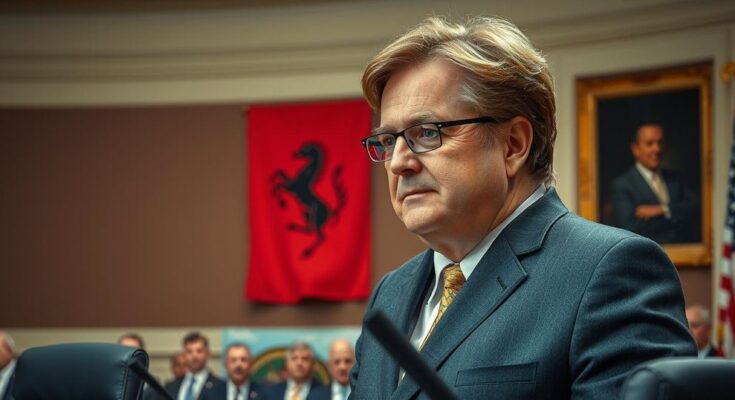German President Frank-Walter Steinmeier dissolved parliament and scheduled early elections for February 23, following the downfall of Olaf Scholz’s government. The decision stems from internal conflicts over economic revival strategies and a recent violent incident, prompting renewed debates on security and immigration. Steinmeier urged a respectful and transparent campaign, warning against foreign influence and addressing significant upcoming challenges.
On Friday, German President Frank-Walter Steinmeier officially dissolved the parliament, establishing February 23 as the date for the anticipated early general election due to the recent collapse of Chancellor Olaf Scholz’s government. The downfall was attributed to internal conflicts surrounding strategies to rejuvenate Germany’s economy, further exacerbated by the tragic car-ramming incident at a Christmas market, which has reignited fervent discussions regarding security and immigration in the nation.
Steinmeier, while confirming the election date, underlined the pressing necessity for “political stability” and called for a respectful and dignified electoral campaign. He highlighted the importance of conducting the campaign with fairness and transparency and cautioned against “foreign influence… which is particularly intense on X,” the social media platform. The President emphasized that hatred and violence should have no role in the forthcoming electoral process, stating, “Hatred and violence must have no place in this election campaign, nor denigration or intimidation… all this is poison for democracy.”
Moreover, he reminded political parties and constituents of the significant challenges lying ahead for the next administration, including the ongoing unstable economic landscape, conflicts in the Middle East and Ukraine, alongside persistent debates on immigration and climate change. Chancellor Scholz is set to remain in office as a caretaker until a new government is established, a process that may take several months.
The dissolution of the German parliament by President Steinmeier comes on the heels of Chancellor Olaf Scholz’s government falling apart due to unresolved internal disputes about economic policies. The renewed urgency for elections also follows a violent incident at a public market, which has amplified public sentiment surrounding security and immigration issues. Within this context, electoral integrity and the issues at stake in the upcoming elections are critical, considering the current economic instability in Germany and broader geopolitical challenges.
In summary, the German political landscape is set for significant changes as President Steinmeier calls for an early election on February 23, following the collapse of Chancellor Scholz’s coalition government. Steinmeier’s emphasis on the need for a respectful and fair campaign amidst external pressures and internal challenges reflects the critical nature of the upcoming elections in addressing key issues such as security, immigration, and economic stability.
Original Source: www.kyivpost.com




